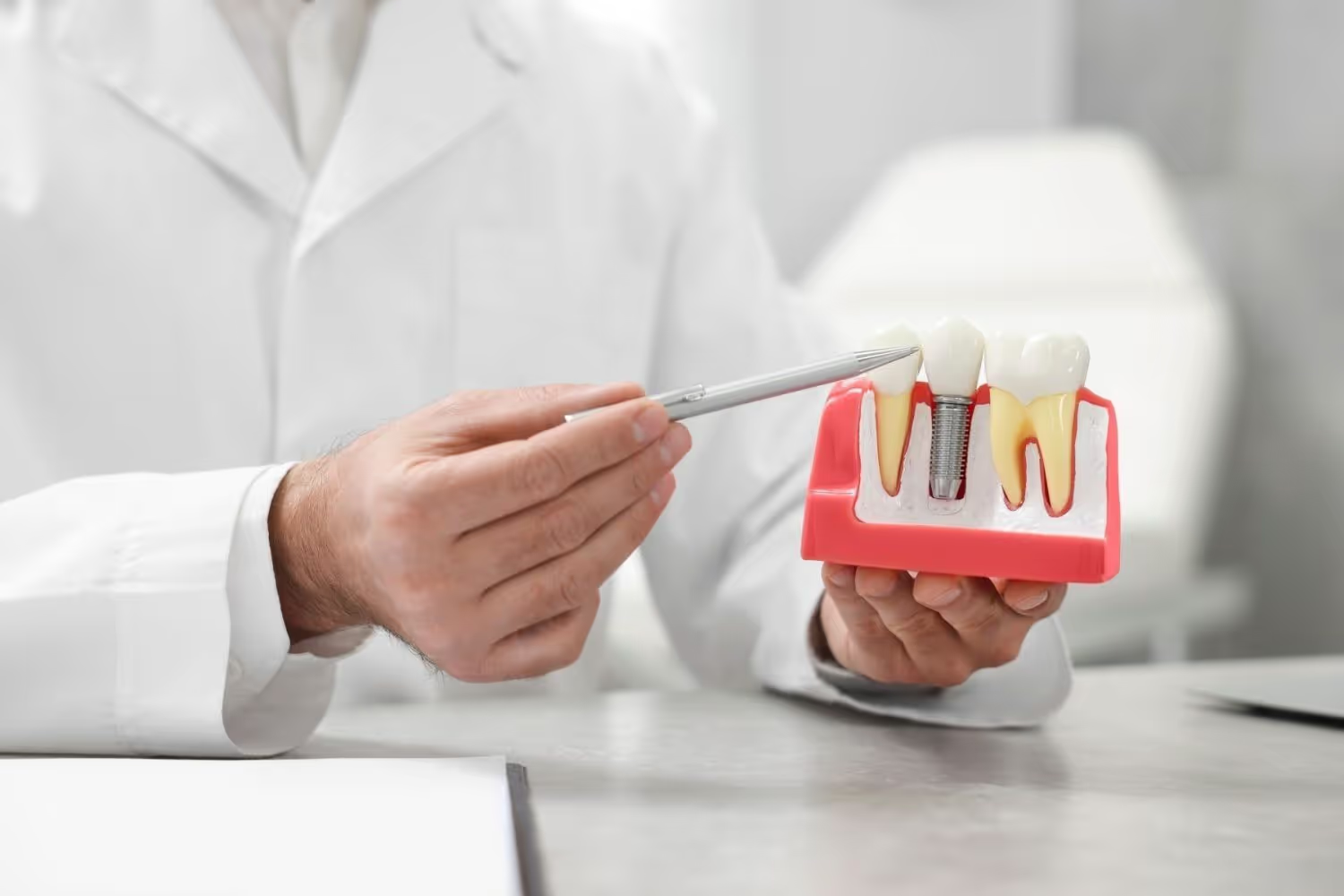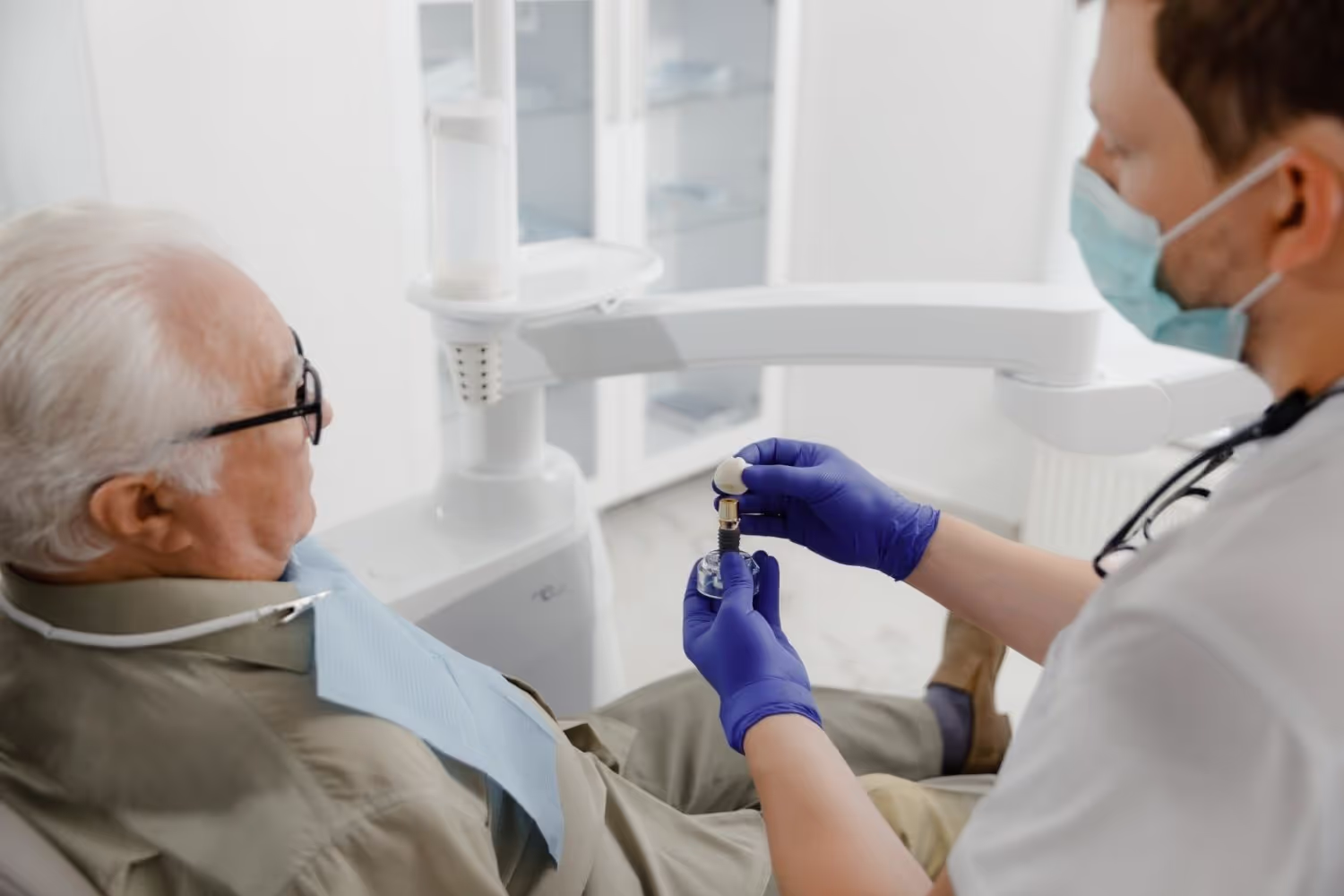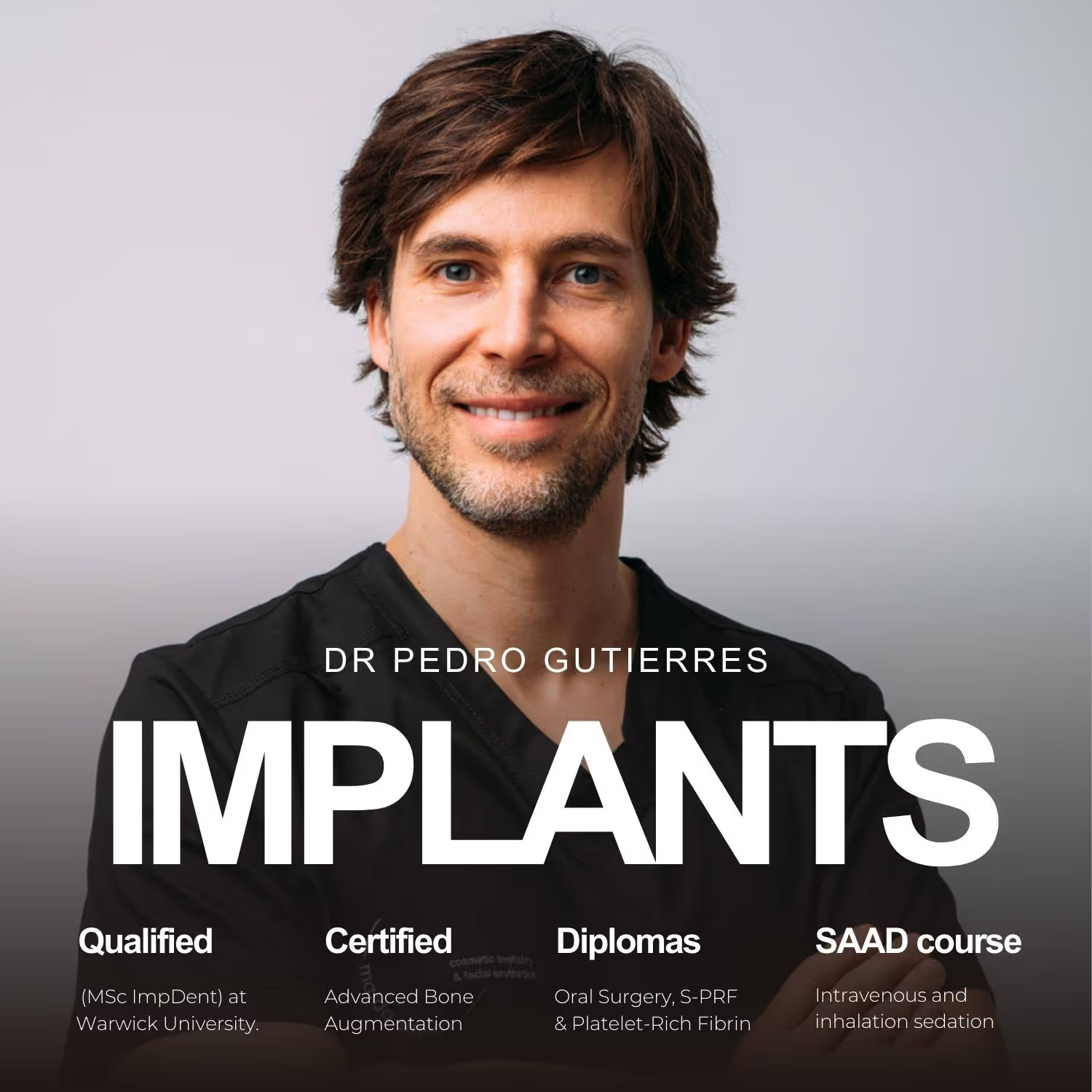

September 18, 2025
Chances are if you’re Googling screwless dental implants, you’re considering treatment abroad as these types of implants are often used by Turkish clinics to speed up the process.As a UK-based dentist who has committed their practice to dental implants, we thought it best to educate patients on the types and differences and why it matters which implant you choose.

With the rise in dental tourism over the last few years and thousands of UK patients seeking cheaper treatment abroad for their missing teeth, we’ve seen screwless (cement-retained) dental implants grow in popularity.Screwless dental implants are not fundamentally flawed, but they’re not always the best option or the right fit for all cases. Cheaper clinics might prefer to use them because they’re quicker and cheaper to place, not necessarily because they’re the optimal choice for the patient’s reconstruction.
Cement-retained screwless dental implants rely on cement to connect the dental implant to the abutment as an alternative to a small screw.
Screwless dental implants are recommended for the front teeth to create an even more natural-looking appearance. However, this option is not always favoured, as the potential risks and downsides tend to outweigh any cosmetic advantage.In addition, the only other time our dentists would likely recommend a screwless implant is in areas of limited space or angulation issues.

While screwless dental implants might seem appealing as they’re cheaper, they come with their own risks and limitations. They are favoured abroad because their placement involves less surgery and faster recovery times, which means Turkish dentists can rush essential parts of the process so they don’t need to see you again.

Even if you are set on treatment abroad, we recommend that you consult with a qualified dentist in the UK who can determine the best approach for your long-term oral health or at least guarantee that the materials and designs used abroad meet UK standards to avoid future problems.In the UK, dentists must follow strict regulations to ensure the highest standards of quality, so you can rely on our advice to identify the correct course of treatment and type of implant, whether screw-retained or screwless.If you’d like expert advice on dental implant treatment and the best types for long-term results, book a consultation with our team today.